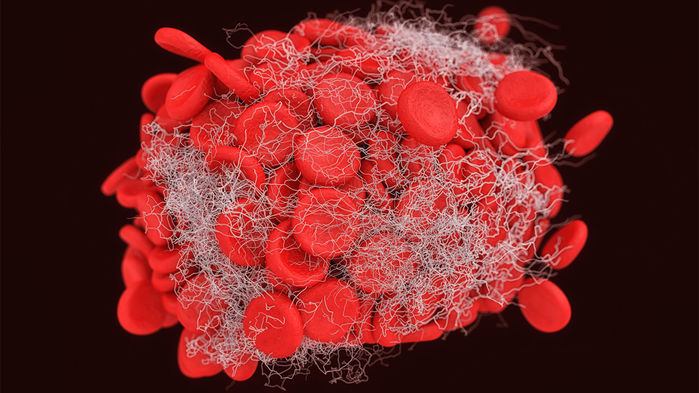Original source: Science
Researchers have scored their first clear success in using gene therapy to treat hemophilia, an inherited blood disorder.
Ten men received a single intravenous infusion of a harmless virus ferrying a gene for factor IX, a blood-clotting protein missing in people with hemophilia B. Up to 18 months later, the men’s livers are making, on average, 34% the normal level of factor IX. That’s enough that nine of the 10 patients have had no bleeding episodes, researchers reported in The New England Journal of Medicine. What’s more, eight of the 10 no longer need factor IX injections every few days.
Previous gene therapy trials for hemophilia B didn’t go well, either because patients’ immune systems destroyed the modified cells or the cells didn’t make enough factor IX.
In the new trial, sponsored by Spark Therapeutics and Pfizer, researchers gave the patients’ liver cells the gene for an unusually potent version of the factor IX protein. That allowed the team to lower the vector dose, minimizing immune responses.
Two patients had elevated liver enzymes in reaction to the vector, but those levels came down after they received steroids.
Only 20% of hemophilia patients have the B form, but efforts are also underway to use gene therapy to treat the most common type, hemophilia A.
